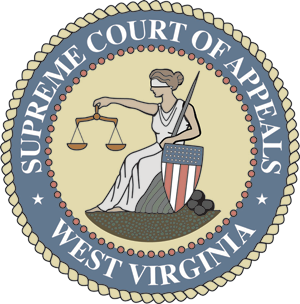West Virginia Supreme Court Upholds the First Amendment Rights of its Workers

On April 21, 2020, the West Virginia Supreme Court released its decision upholding the state’s right-to-work law, the Workplace Freedom Act. The law was passed in 2016, but after its passage, the West Virginia AFL-CIO and other labor unions sued the state, arguing that the law was unconstitutional. However, the West Virginia Supreme Court has rejected their arguments and reversed a lower court’s decision in a big win for West Virginia workers.
Designed to protect workers, the Workplace Freedom Act simply forbids collective bargaining agreements that require non-union member employees to pay union dues as a condition of employment. Labor unions, however, argued in their lawsuit that the Act violates three of their rights under the West Virginia Constitution: 1. Their right to associate; 2. Their property rights; and 3. Their liberty.
The lower court, the Circuit Court of Kanawha County, first examined the labor unions’ right to associate argument and agreed with the labor unions. The Court found that the Act violated the association rights of labor organizations and their members by impairing their ability to recruit new members and keep their current members. The court said that workers would have no incentive to join unions without compelled dues because they could get the benefits of union representation without paying dues. Further, the members who continued to pay dues would have to pay higher dues to pay for the non-union members. Finally, the lower court found that workers were protected from supporting messages that they disagreed with by requiring labor unions to reimburse the portion of dues spent on advocacy and that workers did not have a right not to associate.
The West Virginia Supreme Court, however, rejected the analysis of the lower court. In explaining its decision, the Court started its own analysis by saying that the National Labor Relations Act allows states to enact Right-to-Work laws, and twenty-seven states have passed constitutional amendments, statutes or both. Further, no federal or state appellate court has found Right-to-Work laws unconstitutional in over seven decades.
The Court next found similarities between a 1947 U.S. Supreme Court case, Lincoln Federal, and this case because while Lincoln Federal was about forcing workers to join unions to keep their jobs, the Supreme Court rejected the unions’ argument that the government forbidding requiring workers to join unions infringed on their rights.
The Court also rejected the unions’ argument that this case is similar to Civil Rights Era cases where the states were trying to punish Americans for joining the NAACP by forcing the NAACP to publish a list of its members. Unlike those cases, this Act doesn’t prohibit unions from recruiting new members or help punish workers who join a union. The Act is solely about protecting the rights of workers not to be forced to support organizations that they disagree with.
The West Virginia Supreme Court also mentioned the 2018 Supreme Court case, Janus v. AFSCME. The U.S. Supreme Court in that case found that forcing state government workers who chose not to join a union to pay fees to a union violated their First Amendment rights. The West Virginia Supreme Court acknowledged that the Janus case was about state government workers, but it reasoned that there wasn’t a difference in the First Amendment rights of public and private sector workers.
The Court next examined whether the Act violated West Virginia’s Takings Clause. The circuit court had found that there had been a taking because labor unions as exclusive bargaining representatives have to represent all employees, including those who don’t join the union. The court’s reasoning was that because the labor unions have costs associated with representing these nonmembers, there is a taking if they can’t be compensated for these costs.
The West Virginia Supreme Court rejected the lower court’s analysis, finding that there was no taking. The court explained that labor unions can only speculate that future collective bargaining agreements would require nonmembers to pay fees to the union. Because the Act doesn’t affect current agreements, only possible future agreements, there is no taking. Further, the Act doesn’t require labor unions to provide representation to nonmembers. Instead, federal law requires this representation. Labor unions also receive benefits for representing all employees. The Supreme Court in Janus v. AFSCME found that one of the benefits unions receive is the requirement that employers bargain in good faith with labor unions. This requirement gives labor unions enormous power. Finally, the choice to represent all employees is optional for labor unions. For these reasons, the court concluded that there was no taking.
Finally, the West Virginia Supreme Court examined the liberty issues argument by the labor unions. The circuit court found that the right-to-work act infringes on the liberty interests of labor unions because the act is arbitrary. The act is arbitrary because it requires labor unions to provide services for nothing. The Supreme Court, however, also rejected this argument because federal law requires that labor unions represent all employees, not the state’s right-to-work law.
This court decision is a huge win for West Virginia workers not only because it protects their First Amendment rights, but also because right-to-work states are more prosperous than forced-unionism states. For example, according to the National Institute for Labor Relations Research, the percentage growth in the number of people employed (2009-2019) was 16.9% for right-to-work states, while the percentage growth for forced unionism states was only 9.6%. Similarly, the cost of living-adjusted per capita disposable income in 2019 for right-to-work states was $48,102, while in forced-unionism states, it was $46,676. The number of welfare (TANF) recipients per 1,000 residents was also lower in right-to-work states.
Congratulations, West Virginia workers!





